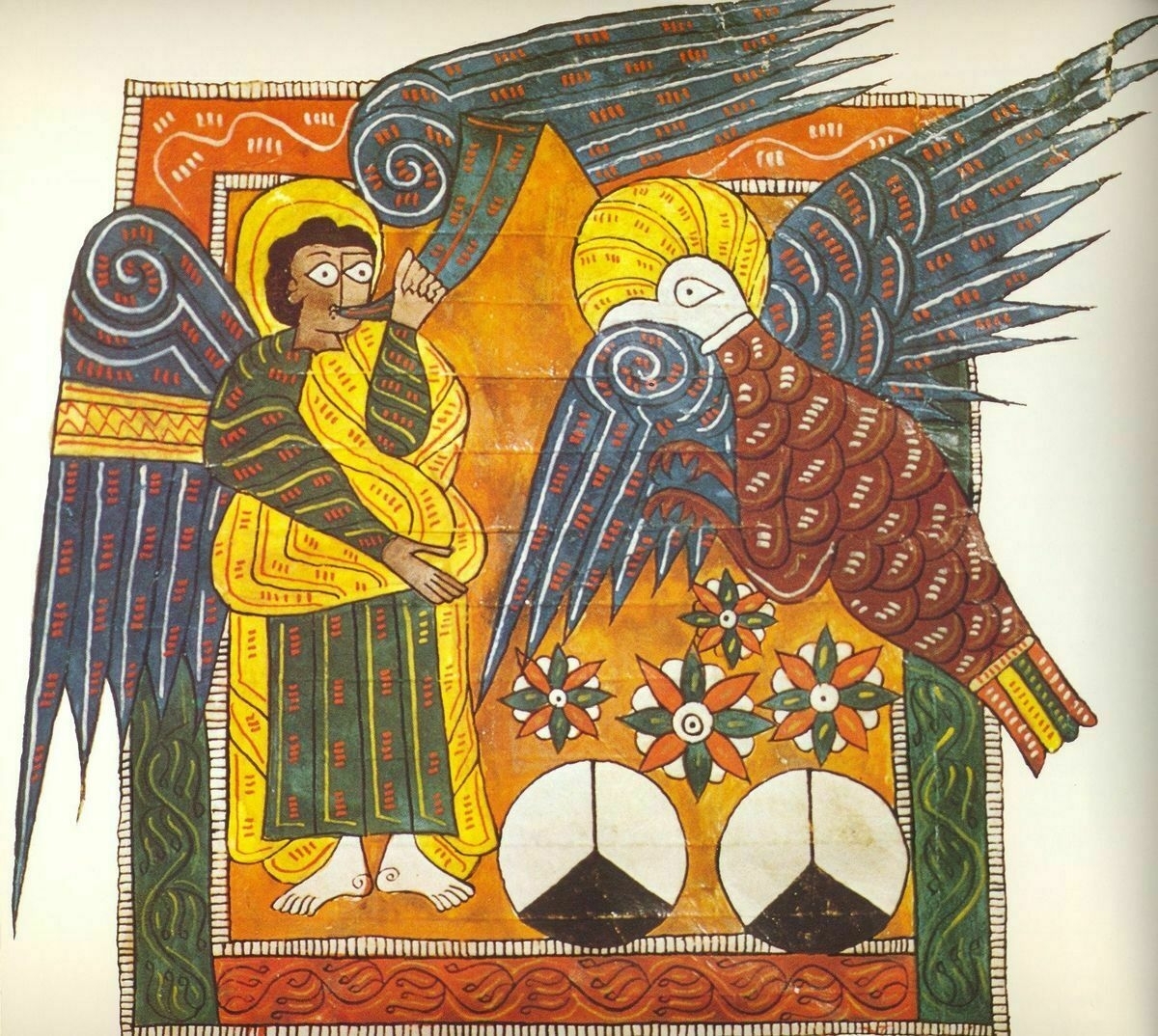-
Rinkitink 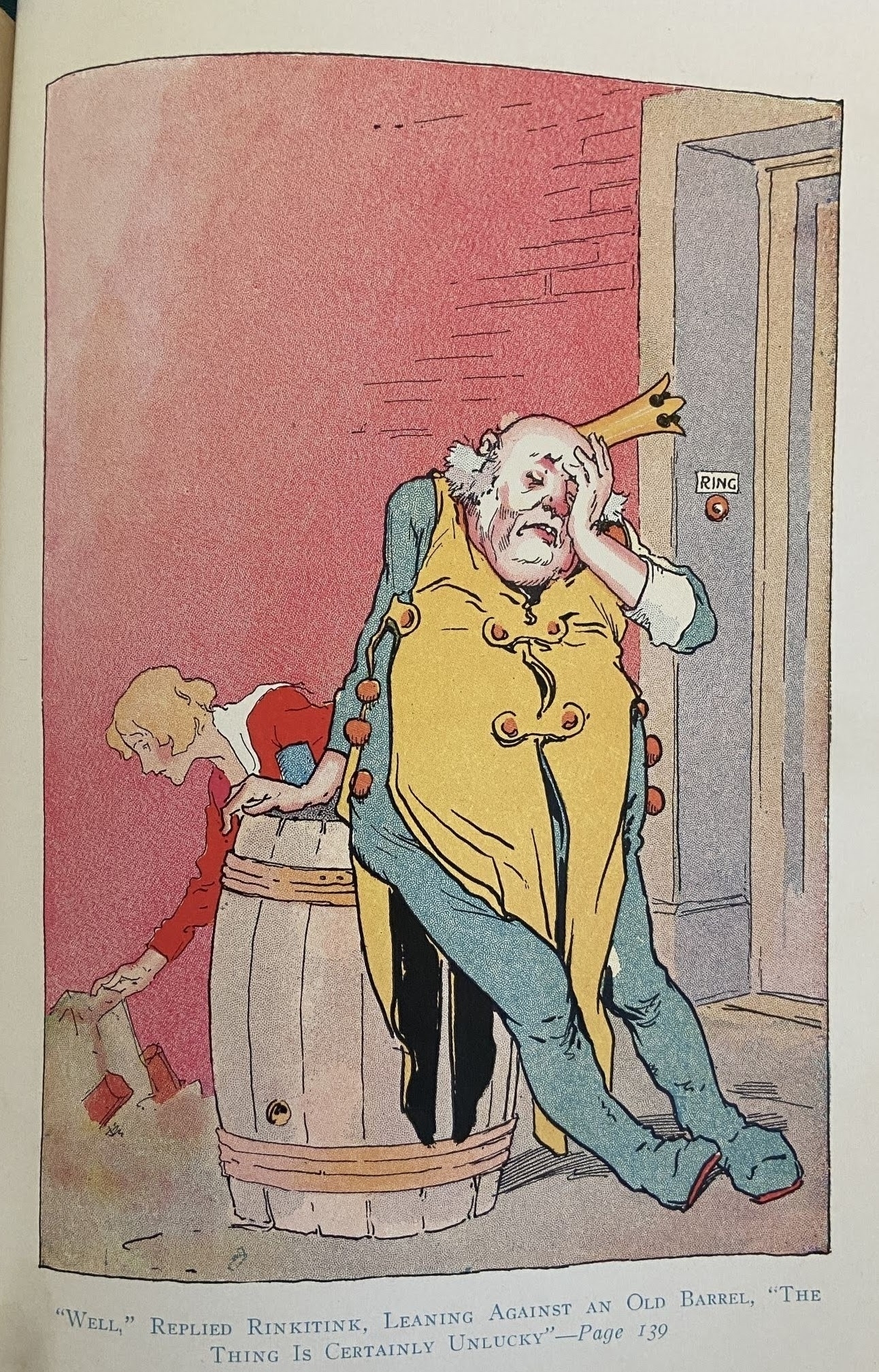
King Rinkitink of Gilgad, by John R. Neill, from Rinkitink in Oz, by Frank L. Baum, 1916From The Sacred Journey, Frederick Buechner:
For reasons that I can only guess at now, no one I came to know during that first year in Oz left a deeper mark on me than a plump, ebullient king named Rinkitink. He was a foolish man in many ways who laughed too much and talked too much and at moments of stress was apt to burst into unkingly tears; but beneath all that, he gave the impression of remarkable strength and resilience and courage even…
Rinkitink was a very vulnerable man, silly and unstable in numberless ways, but in his fatness he seemed also somehow solid and substantial, eccentric and yet reliable with his slippered feet planted heavily on the ground and his heart in the right place. Like a tree that has been blown for years from so many directions by so many winds that none of them can ever quite blow it down, he seemed strong in his very vulnerability. In his capacity to laugh and weep at the drop of a hat and in general to make a fool of himself, he seemed wise with the wisdom of a child who sees better than his elders that the world is indeed something to laugh and weep about and who, more realistically than the rest of us, accepts his own foolishness as part of the givenness of things. Frightening and terrible adventures befall him in the course of Baum’s book, but somehow he always manages to come riding out of them on the back of his faithful goat Bilbil. The world can wound him and scare the daylights out of him, but never, you feel, can it destroy him. It is only the world of the fairy tale to be sure, but nonetheless he has overcome that world, and I have remembered him with admiration and love ever since.
In different guises (though always fat) and under different names, Rinkitink has haunted me always…
… these books were all childhood or early boyhood reading – but certain patterns were set, certain rooms were made ready, so that when, years later, I came upon Saint Paul for the first time and heard him say, “God chose what is foolish in the world to shame the wise, God chose what is weak in the world to shame the strong, God chose what is low and despised in the world, even things that are not, to bring to nothing things that are,” I had the feeling that I knew something of what he was talking about. Something of the divine comedy that we are all of us involved in. Something of grace.
-
Easter in Brooklyn St. John’s Park Slope: wonderful! Alleluia! The Lord is risen!
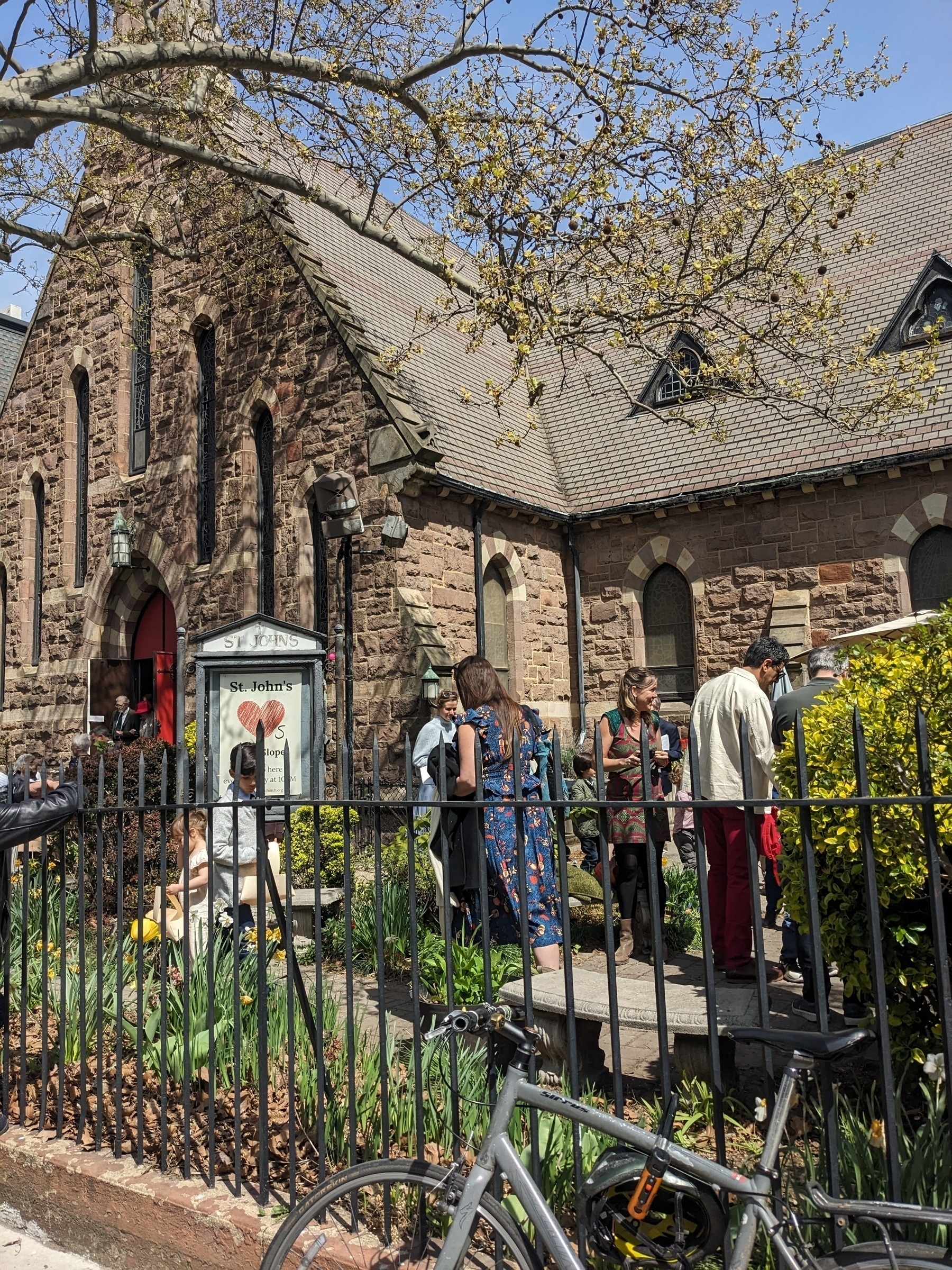
-
Beauty now begins the final movement Malcolm Guite:
Come close with Mary, Martha, Lazarus So close the candles flare with their soft breath And kindle heart and soul to flame within us Lit by these mysteries of life and death. For beauty now begins the final movement In quietness and intimate encounter The alabaster jar of precious ointment Is broken open for the world’s true lover, The whole room richly fills to feast the senses With all the yearning such a fragrance brings, The heart is mourning but the spirit dances, Here at the very centre of all things, Here at the meeting place of love and loss We all foresee, and see beyond the cross.
-
Tariff Talk To the extent they can reasonably figure it out*, I’d like to see sellers include a separate line item on invoices that shows the portion of the price attributable to tariffs. Knowledge is powerful.
*They can acknowledge it’s an estimate.
-
Grateful I planted 200 of these suckers last November, and am so glad to see them coming up. God grew ‘em, not me. But I did participate in the project.
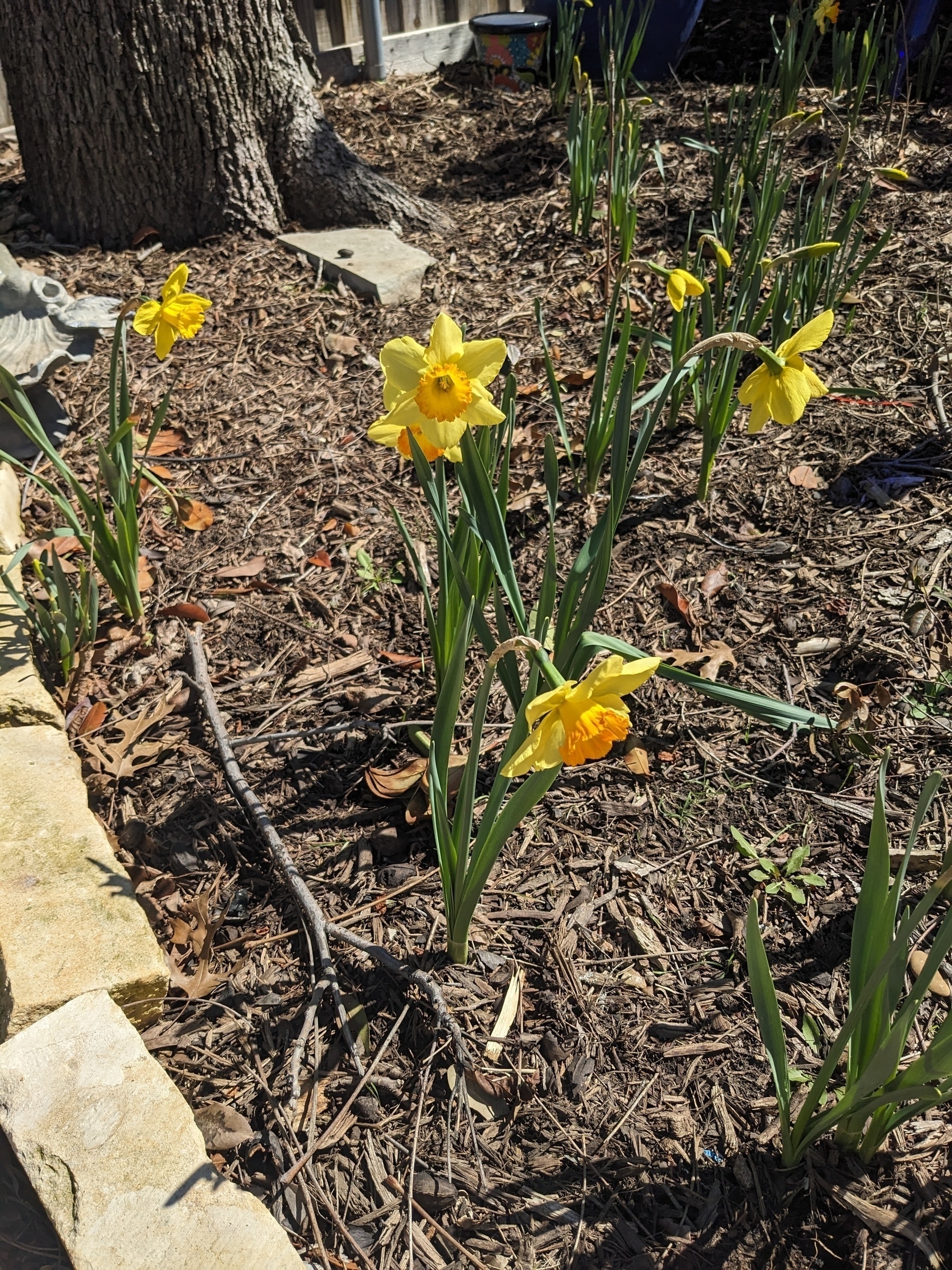
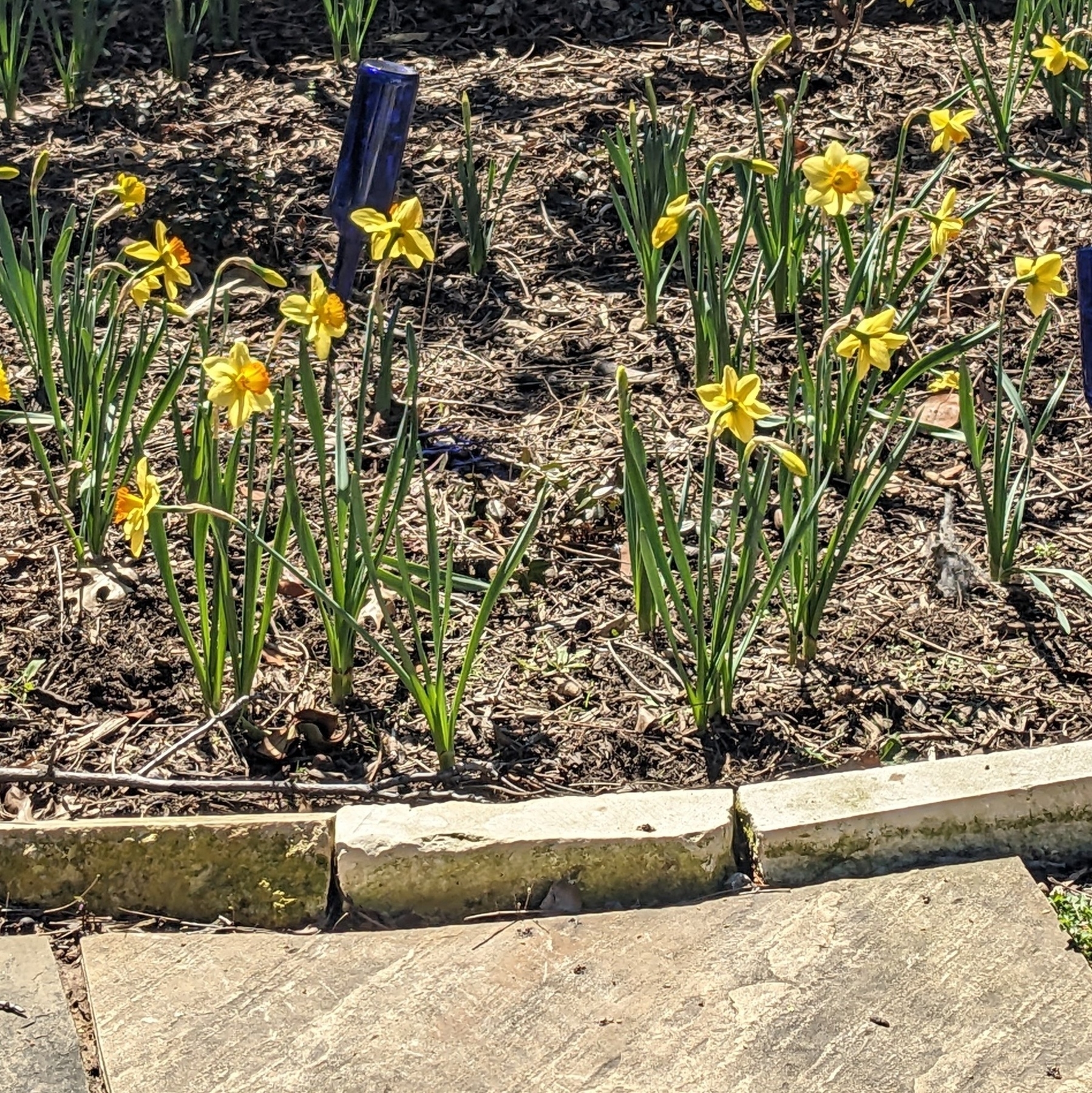
-
Let’s Talk About Sex “Anora” – a movie about a sex worker and her client – won a bunch of Oscars this year. I haven’t seen it, so I can’t comment on the movie. But it struck me that both the lead actress and the writer/director made a point to express solidarity with sex workers. What might they have been trying to convey? And what did they convey without trying? As with almost all human endeavors, I suspect there were a bunch of motivations, some of which contradict each other.
First, they seem to have been holding up the truth that prostitutes are, indeed, real human beings, not types, and therefore are worthy of respect as humans. Excellent. Count me in.
They may also have been endorsing the idea that prostitution should be freed from old, outworn stigmas that a repressive society traditionally associates with the oldest profession. Maybe they think women and men should be free to provide sex (safely) in exchange for money, especially if the money translates to power that’s traditionally inaccessible to sex workers. This notion views sex as a good or service tradeable for money (aka power), the same as any other commodity.
Here, we part ways, because this misunderstands the right purpose of sex. My understanding that there even is a right purpose of sex necessarily arises from the notion that God, as the giver of the gift that is sex, attaches an intent to it. I hold that God’s intent for sex is to nurture intimacy between the lovers. Undoubtedly, God has additional intentions, such as the gift of children; but here I’m concerned with intimacy. Also, I quite understand that sex certainly can be used as a means to an end, and that’s a very old story (see, e.g., Lysistrata). But that’s not OK in my book. Also, it can be just plain fun. But, it’s meant to be fun that’s shared, ideally with someone you care about.
It’s no accident that at its best, sex is something we do naked. Nakedness is a stripping away of pretense as a way to truly see and be seen by the one you love. Opening our bodies to each other is emphatically not intended as a tool to wield power or extract payment. Using sex for those purposes instrumentalizes sex and commodifies one’s self and one’s partner. It’s the antithesis of nurtured intimacy. (For the same reasons, I don’t like “using” as a verb in this context.)
The “Sex-as-ATM” idea is a manifestation of what Alan Jacobs (@ayjay) calls “Metaphysical Capitalism,” which treats all creation and the entire human condition as elements of a vast market. (See, the discussion of Kant’s view of sex and marriage in this post.)
What’s particularly poignant about viewing sex in this way is that it subverts the humane and tender motivation to understand prostitutes as human beings deserving of respect. I don’t know that many in the “pro-sex-worker” cohort see it, but the idea that our bodies and our intimacies are tradeable commodities is truly, sadly, deeply inhuman.
-
Are You Sure About That? Faith is not the absence of uncertainty. I’m a person of Christian faith, but I admit I’m not certain of anything – God’s existence, Jesus' resurrection, the presence of the Holy Ghost. Yet, I have [uncertain] faith in all these things. That faith – together with the evidence of my own experience and, more importantly, what I’ve seen in other faithful people – means my uncertainty doesn’t cause anxiety. *
When Hebrews says, “Now faith is the assurance of things hoped for, the conviction of things not seen,” the author may seem to speak of certainties; “assurance,” “conviction” – those are certainty words. But, there’s also uncertainty in “things hoped for” and in “things not seen.” I feel that tension. And yet, even in the face of uncertainty, I’m not anxious about these things. Perhaps, that’s a gift that Hebrews speaks of as “assurance” and “conviction.”
*I reckon that like St. Paul (in the KJV), I am persuaded of the truth of the Gospel. “For I am persuaded, that neither death, nor life, nor angels, nor principalities, nor powers, nor things present, nor things to come, nor height, nor depth, nor any other creature, shall be able to separate us from the love of God, which is in Christ Jesus our Lord."
-
The Finder Found @ayjay, quoting Ross Douthat on Paul Kingsnorth’s coming to Christian belief:
… he began to feel impelled toward Christianity — by coincidence and dreams, by ideas and arguments, and by … stark mystical experiences
@ayjay, again, contrasting the homo religiosus “seeker” with the Christian:
We Christians don’t seek, we are found by the One who seeks us.
Exactly. And it seems to me that Kingsnorth’s coincidence and dreams, ideas and arguments, and stark mystical experiences are God’s drawing Kingsnorth to Him; of, as Edwin Muir beautifully writes, his being found.
-
Begin with the Heartbreak Russell Moore (italics mine):
On the other side of the sword that cuts through Mary’s heart at the cross (or those that cut off the martyr’s heads in first-century Rome), there’s a weight of glory that cannot be described adequately with words. We can free ourselves to risk heartbrokenness because a broken heart is the beginning of the story, not the end.
-
A Christmas Carol, Sung to the King in the Presence at White-Hall Robert Herrick:
The darling of the world is come,
And, fit it is, we find a room
To welcome Him. The nobler part
Of all the house here, is the heart …Merry Christmas!
-
Seeing The Gospel tells us: “Blessed are the pure in heart, for they shall see God.” I am not pure in heart but I think I may have encountered such a person. At the least, I have read stories about such a person and I know that such persons see what I cannot and they see in a manner that as yet I do not.
But this goes to the point of salvation. Salvation is not how to get people like me (or like you) into some place safe from the fires of hell. That is a transportation problem at best, or a legal problem, at worst. The point of salvation is how to change people like me (and you). It is about changing us such that seeing the resurrection becomes possible. …
If I could see as I am meant to see then my eyes would not see enemies nor the like. Not that others might not intend to be my enemies or want evil for me – but there are eyes that see beyond all of that and see the Truth of a person. Had I the eyes to see, love would not be an insurmountable problem but as tangible as the Resurrection itself.
H/T @ReaderJohn
-
Rutter Christmas Lovely. As ever. (OK, a couple are overly bouncy. But I’ll gladly put up with them if I can hear “What Sweeter Music.")
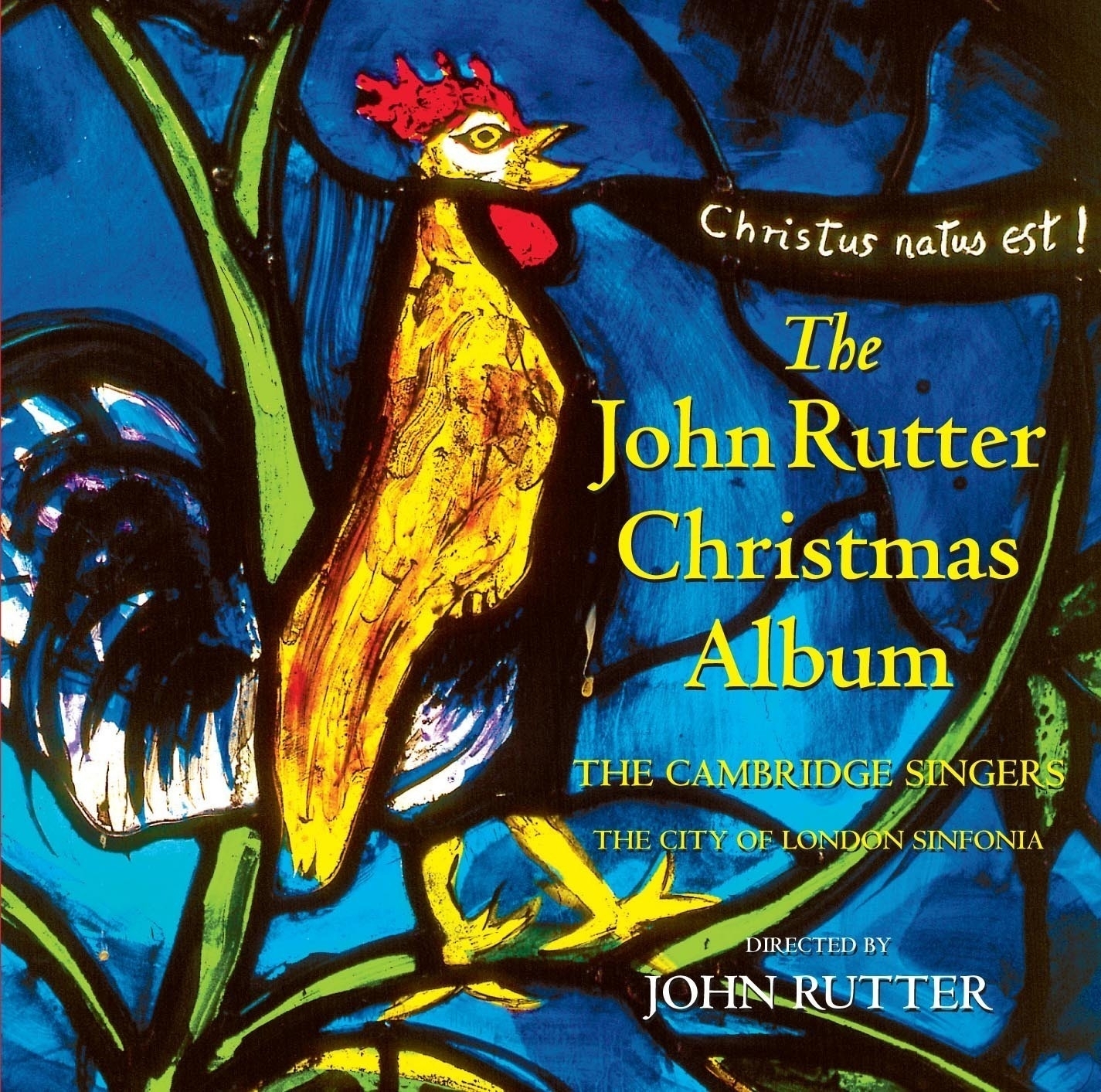
-
Two Kinds of New We say, “Merry Christmas and Happy New Year” in one breath, and commonly refer to this time of year as the “Holiday Season”, as if it were all one singular event. There is an interesting irony in lumping the two celebrations together …
-
Song of Zechariah In the tender compassion of our God
the dawn from on high will break upon us
To shine on those who dwell in darkness and in the shadow of death,
and to guide our feet into the way of peace. -
Foibles are Features As impersonal systems play increasing roles in information-gathering and decision-making, the personal element can be summed up as “human error.” … [T]hen of course the fields concerned with human nature—specifically, all the ways it is not predictable—are unseated, too…
[I]t is simply better to be a human when a personal God is at the heart of the universe. Human lives are easier to defend. Human joys have cosmic significance. Human foibles are “a feature, not a bug.” Human creativity is more arresting. Human language can be savored. Human stories must be told.
-
A Treasure Malcolm Guite is posting poems he’s collected in his Advent Anthology, Waiting on the Word. I love to hear Malcolm read (and speak). Today’s offerings, a poem by Robert Hayden, and art by Linda Richardson, are particularly lovely.
-
What Might This Look Like in America? An imaginative conservatism should see in Scruton’s centring of beauty in architecture and design a natural affinity with the articulation of craft as a political and economic ideal in the likes of William Morris. There is a politics and an economics of conservatism to be forged, but it requires making of itself more than an aesthetic gloss of Reaganism.
Sebastian Milbank, “Don’t Idolise Roger Scruton”, The Critic, 03.Nov.2024
-
…well, we’ll live right on… From my friend, Dan Wilson:
… whatever the outcome… “well, we will live right on.” We will all go about doing what we do, get the kids off to school, go to work, do the laundry, and go about our lives. And that is as it should be because the greatest impact on our world does not come out of Washington anyway. It never has. Ultimately, it comes from each of us and how we live out our ordinary lives, our good deeds, humility, loving our neighbor, and loving God.
-
The Christian Gospel in a Nutshell Luke, Chapter 15. Lost sheep, lost coin, lost boy. All wonderful. But the best is at the top in v.2: “… the scribes murmured, saying, ‘This man receives sinners and eats with them.'” Good news, huh?
-
Two yearsMy mom died September 1, 2022: 4 months and 4 days shy of her 99th birthday.
I think of her and Dad all the time. The best is when they're in my dreams.
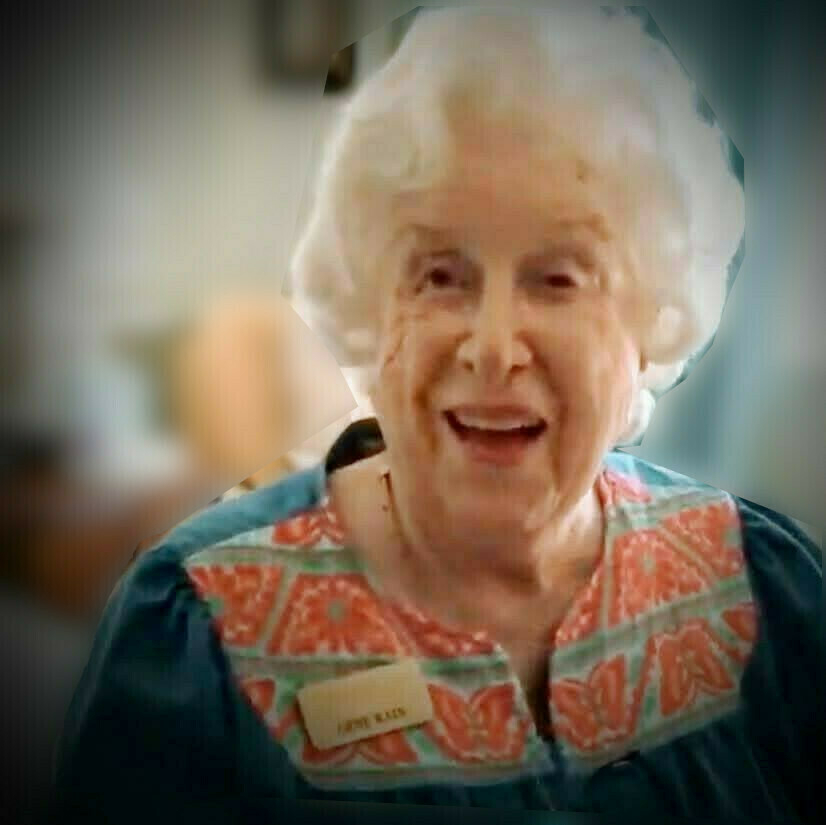
-
Preach, Jaroslav
Tradition is a good thing. It is traditionalism that is bad. Tradition is the living faith of the dead; traditionalism is the dead faith of the living. Tradition lives in conversation with the past, while remembering where we are and when we are and that it is we who have to decide.
—Jaroslav Pelikan
(h/t blog.angloromanticism.org - btw, my new band name)
-
When I first sat with Wendell [Berry] to talk about educating farmers as farmers, he started by turning to the idea of love—in the fullness of the term, not sentimentalized but fully rounded, with the joyful and the difficult joined through membership in a place and with its people.
He then asked a question that I try to answer every day: what works does this love propose?Start with love, then see what works that love proposes. (H/T: @ayjay)
-
Talking about faith
A thesis: “When considering faith, it’s helpful to ask, ‘Is this right?’ or ‘Is this good?,’ as a way to discover ‘Is this true?'” (None of this is new; but it’s stuff I like to work out in writing.)
Consider this analogy: When we think about entering into a relationship, say a marriage (but it could be a friendship or even, taking a job at a company), we don’t ask, “Is this step true?” We ask, “Could this step be good? Could this be right?"* And we only discover the answer after we’ve (1) committed to the relationship and (2) lived out that commitment over time. (See Leslie Newbigin’s reading of Michael Polyani for more.)
This knowledge of the goodness or rightness of a relationship through lived experience would typically be seen as subjective knowledge. But, turning now to faith, let’s not discount experience. If a lot of other people, living over the course of centuries and in a range of families, countries, and cultures, also experience that the relationship with God is good and right, doesn’t that suggest the goodness or rightness are reliable, even if they’re known subjectively? (Is that one reason why Christians live their faith in community, in a “cloud of witnesses”?)*
Moreover, even in a one-to-one relationship, such as a marriage, i.e., Megan’s and my marriage, I am pretty confident in knowing that our marriage is good, though it sounds weird(ish) to say, “Our marriage is true." And like a marriage, our experience of faith probably changes over time (and, one hopes, grows). It’s not static.
Jesus says, “I am the way, the truth, and the life,” so truth is crucial. But, because the modern era tends to subject truth claims to the scientific method (or something like it), I think formulating faith in terms of what’s good and right is an important way we discover what’s true.
-
By “good” and “right,” I mean not only “good for me”, but also, “fit, apt, appropriate, etc.” for a purpose (which requires knowing the purpose), and also “imbued with an inherent goodness and rightness” that transcends my personal benefit and, even, the aptness for a purpose.
-
Of course, other faiths can make the same claim, so this isn’t a support for Christianity, per se; it’s just an argument for shared experience being some evidence of a possible truth.
-
-
Richard Diebenkorn, c. Nineteen fifty-seven
Happy Easter!
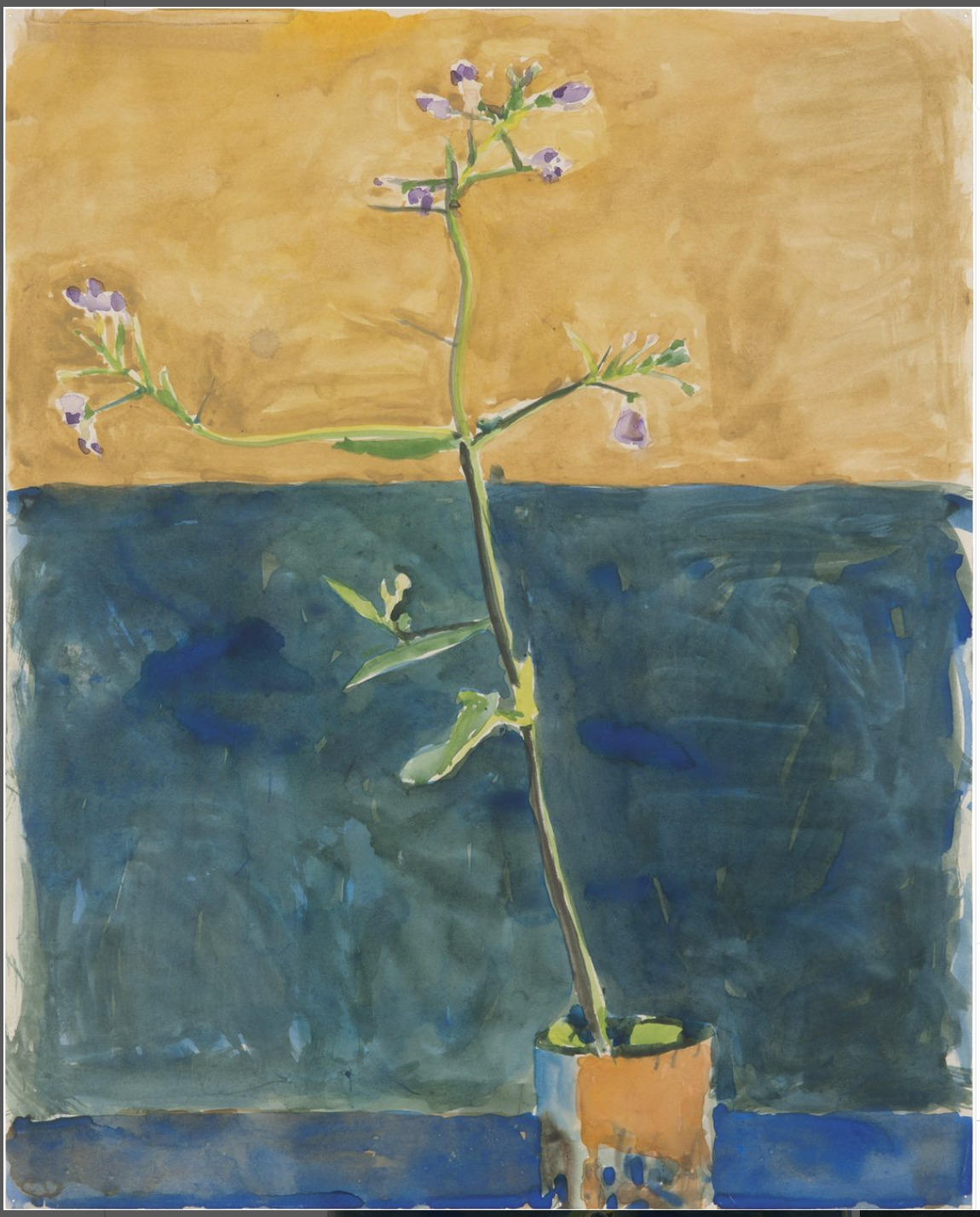
prescribe via RSS
